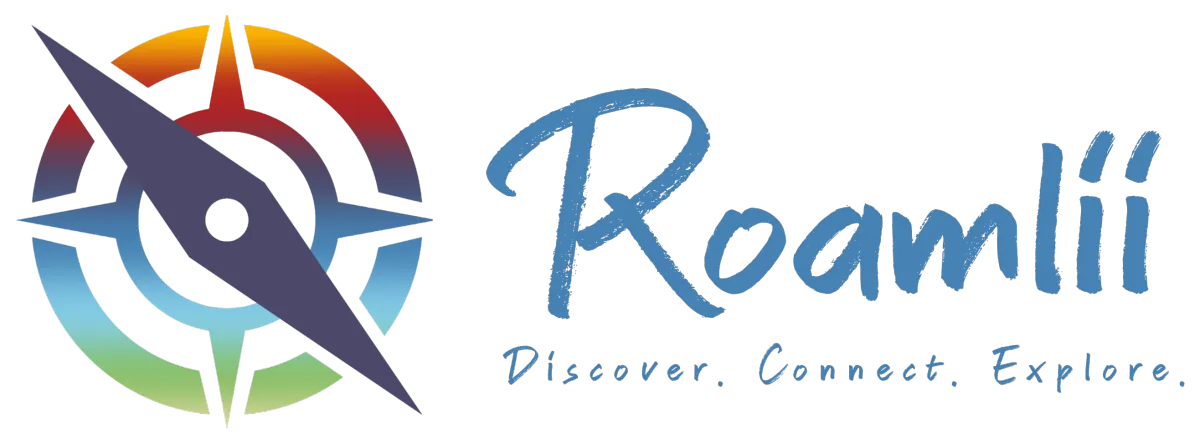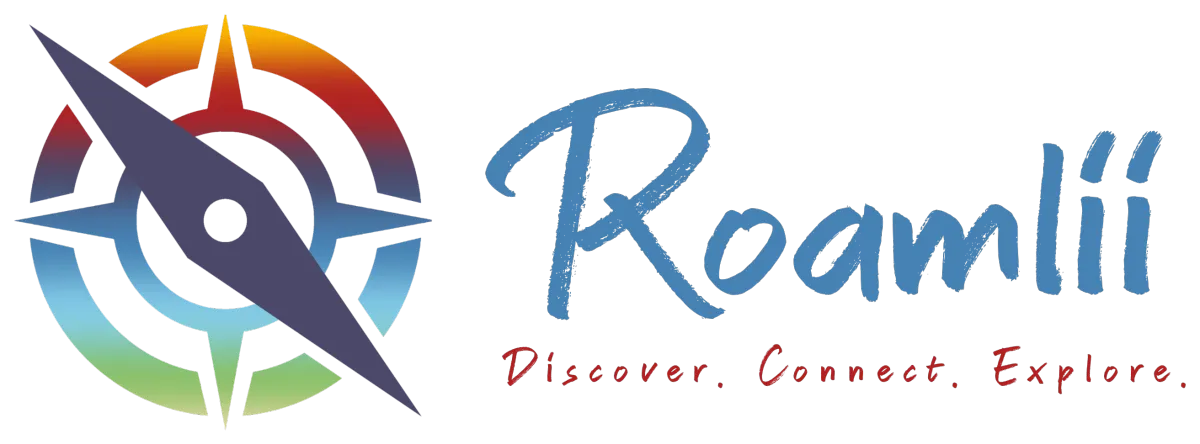Frequently Asked Questions
Still have questions about what we do and how we do it?
Our FAQs page has all the information you need! Contact us if you have any further questions or would like to learn more about our services and offers.
What's Roamlii and what do we do?
Roamlii is a unique software ecosystem that supports the end-to-end digital needs of small to medium-sized Canadian tourism businesses; from discovery and promotion to lead and inquiry management to bookings and scheduling. We're the first and only software company to create a powerful operational command centre for tourism businesses, and we aim to become the most useful platform for local and micro-tourism. For more details about the tools we offer, visit the tools page.
What's the cost?
A traveller profile and business in the Discovery Marketplace are both free! We also offer a comprehensive Lead Management System, SEO and Marketing services. Check our Pricing page for further details.
What are the benefits to tourism businesses?
With Roamlii, businesses regain control of promotion!
As a tourism business owner, you’ll join a community where you can showcase your products and services to travellers on a virtual map. Roamlii is the only tourism aggregator designed as a promotional, marketing, and reservation system, tailored to your needs. We focus on putting all tourism businesses in the spotlight, ensuring that travellers discover every small to medium-sized enterprise in their area.
With Roamlii, you can market your full range of experiences, promote upcoming events, share announcements, recruit staff, and much more. You'll gain access to a comprehensive suite of promotional tools, a supportive community, and valuable partnerships. And our memberships offer a suite of incredible operational tools.
What are the benefits to travellers?
On Roamlii, the power of discovery will be put back in the hands of travellers!
As an experiential traveller, you can explore an interactive map filled with possibilities, guided solely by your curiosity—free from popularity rankings. Roamlii’s unique platform enables organic discovery, allowing you to scroll through the map and find attractions and accommodations without algorithmic interference. You can also use keyword searches and filters, all under your control. Additionally, travellers have access to a suite of tools designed to connect them with fellow explorers, share meaningful experiences, and enhance their ability to discover the world around them.
What differences will I find on Roamlii, vs other online tourism systems?
This is an important question, so let’s dive in.
Currently, no other system supports the full scope of the micro-tourism industry, which comprises about 99% of tourism. Most platforms—like Airbnb, VRBO, TripAdvisor, Google, and Facebook—focus on popular and profitable options, leaving many smaller businesses behind.These businesses offer unique experiences—like dinner theaters on trains, axe throwing, dog sledding, and kayak tours—that often go unnoticed. While these experiences are more accessible to many, traditional platforms prioritize profit over genuine support for individual businesses.
Roamlii changes this. We’re dedicated to the micro-tourism sector, fostering a community that prioritizes business success and traveller discovery. Every business has an equal opportunity to shine, allowing travellers to explore hidden gems they might not otherwise find. Additionally, we offer a comprehensive toolkit for both businesses and travellers, unlike any other platform.
Why has no one else done this?
The simple answer is that because they don’t need to.
The business models of platforms like Airbnb, VRBO, TripAdvisor, Google, and Facebook focus on promoting popular listings and monetizing ads, which is highly profitable for them. There's no incentive for them to change what works.
At Roamlii, we’re taking a different approach. We believe we can achieve success and profitability while also boosting the entire tourism industry. Our goal is to showcase small to medium-sized tourism businesses in Canada and provide travellers with a platform to explore and discover hidden gems.
What types of businesses will find value on Roamlii?
Some examples are listed below. This is by no means an exhaustive list though.
- Lodge
- Ranch
- Camp
- Resort
- Bed and Breakfast
- Outdoor Adventure Group
- Sled Dog Excursion
- Snowmobile or ATV Rental
- Segway Tour
- SUP and Kayak Tour
- Rock Climbing Facility
- Go-Cart
- Aerial Adventure
- Escape Room
- Dinner Theatre on a Train
- Museum
- Cultural Facility
- Art Gallery
- Performance Theatre
- Ballet or On-Stage Play
- Festival
- Live Event
Roamlii is built for them all!
What types of travellers will find value on Roamlii?
The travellers who will find value in Roamlii are diverse but typically share a passion for active exploration, community engagement, and local cultures. They are curious and inclined to shop and plan online, often using social media to stay informed and connected. These travellers embrace technology to simplify their lives and are quick to adopt new apps and digital tools.
What upgrades and features does Roamlii expect to deploy over the next couple of months/ years?
We have so much planned for the next 12 to 24 months! Here’s a high-level snapshot.
Experience Booking System
Merch Stores
Virtual Tours
Virtual Festivals
Roamer AI
Search Aggregators
Dynamic Notifications
Intelligent Reminders
AdventureBoard
Gamification
AdventurePoints
Roamlii Adventures
RoamYourCity
What differences will businesses and travellers continue to find on Roamlii?
Roamlii stands out by offering a comprehensive suite of tools tailored for small to medium-sized tourism businesses and enhancing the travel experience for explorers.
We'll continue to connect and harmonize the efforts of City Marketing Organizations (CMO’s), Destination Marketing Organizations (DMO’s), and tourism organizations across Canada, addressing gaps that existing platforms overlook. Our system will continue to allow businesses to promote their products and services on equal footing while enabling travellers to discover the world organically—free from popularity-driven or financially influenced algorithms. With Roamlii, users will enjoy a unique digital community marketplace designed for their needs, success, and enjoyment.
What can users expect down the road?
Users can expect a platform that grows and evolves with them. Roamlii will continue to listen to its business community members, as well as to its community of travellers and industry leaders, and will strive to develop in a direction that matches their needs.
Users can also expect Roamlii to continuously enhance its design so that we’re nurturing the best possible user experience, and we’re providing a system that’s simple to understand, easy to onboard and use, that’s fun to engage with, and that provides unmatched value.
Roamlii will also maintain an unwavering commitment to develop and implement a diverse array of features and tools that it’s user need, want, and enjoy using.
"Everything you ever wanted is on the other side of fear." - George Adair
"Roamlii is headquartered in Saskatoon, Saskatchewan, on Treaty 6 Territory, and the traditional homeland of the Cree, Saulteaux, Dene, Dakota, Lakota, Nakota, and Métis nations. We pay our respects to the First Nations and Métis ancestors of this great land, and reaffirm our relationship with one another."
Copyright © 2025 Roamlii Adventures Inc. All Rights Reserved.

